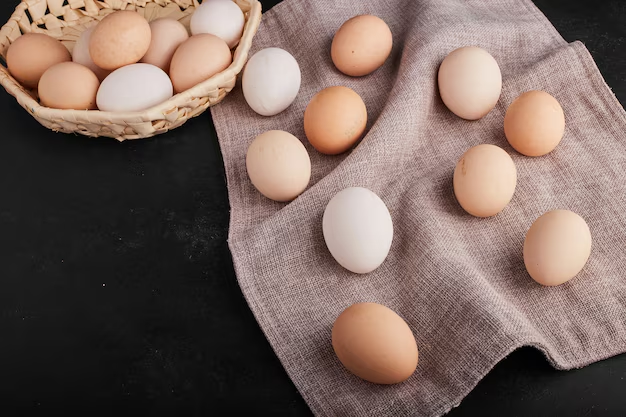How Long Do Fresh Chicken Eggs Retain Their Freshness in the Refrigerator?
Have you ever found yourself standing in the kitchen, wondering if those fresh eggs you bought last week are still good? Understanding the shelf life of fresh chicken eggs in the refrigerator is essential for maintaining egg safety and enjoying the best flavor and texture. Let's uncover everything you need to know about storing fresh eggs, ensuring they stay safe and delicious for as long as possible.
🥚 Freshness and Longevity: Cracking the Egg Code
When it comes to egg storage, there's no absolute expiration date stamped on each shell, but consider a few tips and practices to gauge freshness.
The Natural Longevity of Fresh Eggs
Fresh chicken eggs, when properly stored, can last quite a while in the refrigerator - often far longer than you might expect. Typically, fresh eggs can remain safe and consumable for three to five weeks when kept refrigerated. This longevity makes them a staple in most households, allowing flexibility in meal planning and reducing waste.
Key Factors Influencing Egg Longevity:
- Refrigeration: Essential for maintaining quality and safety. The cold temperature slows bacterial growth.
- Humidity: Keeping eggs at the right moisture level helps prevent them from drying out.
- Eggshell Integrity: The shell protects the contents; cracks can lead to faster spoilage.
Beyond the Expiry Date: Decoding Egg Cartons
While egg cartons often display a 'sell by' or 'expiration' date, eggs typically remain good to eat several weeks beyond these dates. These labels guide sellers and are not hard expiration dates. The eggs' conditions and your storing practices are more critical factors.
🍳 Practical Tips for Extending the Life of Your Eggs
Being proactive in how you store and handle your eggs will maximize their shelf life.
Storing Eggs the Right Way
- Keep Them Cold: Always store eggs in the refrigerator. The ideal spot is the main body of the fridge where temperature fluctuations are minimal.
- Avoid the Door: Contrary to popular fridge design, storing eggs in the door exposes them to temperature changes every time the door is opened.
- Pointed End Down: This small alteration can help maintain the yolk center and prevent air pockets from displacing.
Monitoring Egg Freshness
Use the Float Test: Fill a bowl with water and gently lower your egg into it.
- Sink and lay flat: Very fresh.
- Stand upright: Still good, but should be used soon.
- Float: Not recommended for consumption.
❤️ Essential Egg Safety Insights
While fresh eggs are a versatile ingredient, food safety should always be a top priority.
Recognizing Spoiled Eggs
Spoiled eggs have distinctive signs, including:
- Off-putting smell: If an egg smells sulfurous when cracked open, it’s a telltale sign it’s gone bad.
- Changes in appearance: Discoloration or unusual texture in the egg white or yolk.
Handling Eggs Safely
- Wash hands and surfaces to avoid salmonella risk.
- Cook eggs thoroughly to ensure any bacteria are eliminated, especially important for vulnerable groups.
💡 Thinking Beyond: Related Egg Storage Concerns
Eggs’ versatility extends beyond mere storage, with various factors that might impact your choices in the kitchen.
Organic vs. Conventional Eggs
Often a concern for buyers, organic eggs undergo similar longevity. The main differences lie in the hens' diets rather than shelf life.
Room Temperature Eggs: To Store, or Not to Store?
While some traditions favor keeping eggs at room temperature, refrigeration is always recommended in areas where regulation or climate does not naturally inhibit bacterial growth.
📊 Handy Summary: Keeping Eggs Fresh and Safe
Here's a quick, at-a-glance guide to manage your eggs effectively:
| Action | Tip |
|---|---|
| Store Properly | Keep in the fridge, avoid the door, and place pointed end down. |
| Assess Freshness | Use the float test to determine if they are still good to consume. |
| Check for Spoiling | A bad smell or discoloration are clear indicators something is wrong. |
| Observe Handling Practices | Wash hands and surfaces to mitigate salmonella risk. |
| Understand Labeling | Sell by and expiration dates are guidelines, not strict deadlines. |
Remember, correctly stored eggs retain safety and quality longer, enabling you to enjoy them in a variety of dishes while minimizing waste.
Safe egg consumption is simple with these best practices for storing, checking, and using eggs to their fullest potential. Enjoy your next omelet or cake with confidence, knowing every part of your egg routine is well-informed and efficient!

